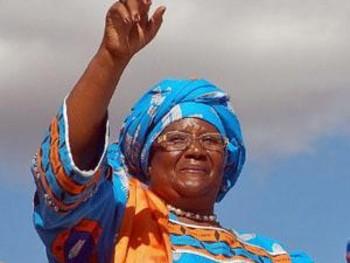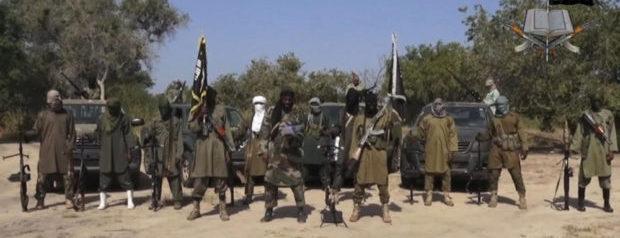The growth of Islamism in Mauritania: should western allies worry? – By Sebastian Elischer

 The Islamic Republic of Mauritania routinely portrays itself as a committed ally in the fight against Islamic extremism in the Sahel. The country participates in the ongoing UN Multidimensional Integrated Stabilization mission in Mali (MINUSMA). In December 2014 Mauritania created the G5, a conference of Sahel countries comprising Burkina Faso, Mali, Mauritania, Niger and Chad, to more effectively fight transnational Jihadi groups. The state-owned newspaper Horizon likes to emphasize that Nouakchott does not tolerate political or violent interpretations of the Koran. Nouakchott’s public relations strategy is remarkably successful: Although the current government claimed power in a 2008 coup and although international human rights associations have consistently criticized the regime for gross human rights violations, the power holders in Nouakchott have the diplomatic support of the European Union and the United States. General David Rodriguez, head of the US Africa Command (AFRICOM), recently thanked the Mauritanian government for its support against the regional jihadi threat in a number of US-sponsored advertisements in Mauritanian newspapers.
The Islamic Republic of Mauritania routinely portrays itself as a committed ally in the fight against Islamic extremism in the Sahel. The country participates in the ongoing UN Multidimensional Integrated Stabilization mission in Mali (MINUSMA). In December 2014 Mauritania created the G5, a conference of Sahel countries comprising Burkina Faso, Mali, Mauritania, Niger and Chad, to more effectively fight transnational Jihadi groups. The state-owned newspaper Horizon likes to emphasize that Nouakchott does not tolerate political or violent interpretations of the Koran. Nouakchott’s public relations strategy is remarkably successful: Although the current government claimed power in a 2008 coup and although international human rights associations have consistently criticized the regime for gross human rights violations, the power holders in Nouakchott have the diplomatic support of the European Union and the United States. General David Rodriguez, head of the US Africa Command (AFRICOM), recently thanked the Mauritanian government for its support against the regional jihadi threat in a number of US-sponsored advertisements in Mauritanian newspapers.
Yet the reality is considerably more complicated. Personal conversations with secular opposition members, Mauritanian academics, civil society activists and moderate members of the Muslim Brotherhood, Salafis, as well as with the Jamaat al Dawa movement reveal that Islamist groups enjoy strong ties with the government and large sections of society. According to these voices, the Islamists’ rise is the result of the failure of the autocratic Mauritanian elite to construct a cohesive nation state and to confront the country’s legacy of slavery.
Although today many Mauritanians enjoy a diverse heritage, at the political level the country remains broadly divided among three communities: The country’s Moors (of Arab descent) have dominated political and economic affairs since pre-colonial times. Black Africans, who Mauritanians refer to as negro-Africans, are divided into three communities (Wolof, Soninke, and Pulaar). The Haratines, the black descendants of Moor-owned African slaves, account for slightly more than half of the population according to estimates by civil society groups and local academics. To classify Mauritania as an Arab country, government statistics only distinguish between black Africans and Moors thereby excluding the Haratines. This is a phenomenon that several Haratine members of the Mauritanian civil service and civil society organisations brought up in personal interviews and conversations. A few prominent Moor families have led all governments since independence from France in 1960.
Every post-independence government has pursued two strategies to perpetuate Moor hegemony. First is the cooptation of carefully selected representatives from the marginalized black African and Haratine communities into the autocratic state machinery. The inclusion of Haratines and black Africans in positions of power has been an effective obstacle to the formation of an ethnically united opposition. Second is the accommodation of a set of highly contradictory ideologies among top administrators of the independent state, including pan-Arabism, pan-Africanism, socialism, and Islamism. As adherence to Islam was the only common denominator among an otherwise heavily divided nation, the government encouraged the influx of clerics and financially well-endowed charities from Saudi Arabia and the Gulf states.
The provision of Islamic health and education facilities provided some degree of social stability and helped the otherwise unpopular government of Moktar Ould Daddah (1960 to 1978) remain in power. However, the growing presence of the Muslim brotherhood and a nascent Salafi community soon went beyond development activities. In the early 1980s Mauritania’s Islamist movement established the Center of Islamic Studies in Nouakchott. Designed as an education institution for the training of future imams, it has produced many conservative non-violent imams. According to some of them and local analysts, the Center also played a key role in the formation of Abubakar Shekau, the leader of Boko Haram, who is said to have attended the school. Local analysts also claim that some members of the Movement for Unity and Jihad in West Africa (MUJWA) also received their indoctrination at the Centre. During the first half of 2012 MUJWA was involved in the jihadi occupation of Mali’s North and the killing of hundreds of innocent civilians.
In addition to the Center of Islamic Studies, Mauritania’s Moslem Brotherhood opened the Islamic Cultural Association. The association was the only independent civil society group allowed to operate legally in the otherwise deeply autocratic system of President Maaouya Ould Taya (1984 to 2005). Its official mission was to spread the message of Islam. Talking on condition of anonymity, several former Moslem brothers claim that below the moderate surface of the association, the Muslim brothers and a growing group of Salafi clerics jointly recruited members into clandestine cells with the ideological aim of establishing a theocratic islamic state.
The growth of Islamism coincided with the rise of a political consciousness among the Haratine community. The severe droughts of the late 1960s led to the disintegration of many slave-owning farming communities. Many former slaves subsequently moved to the capital where they were confronted by the privileged position of the Moor community on a large scale. Mauritania’s attempts to establish a Greater Mauritania in the Western Sahara in the mid-1970s resulted in the deaths of thousands of Haratine soldiers. As a result of these developments, anti-slavery movements such as El-Horr and other Haratine associations began to operate in the early 1980s.
In concert with international human rights organizations, these groups began to exert pressure on the government to end slavery. Imams affiliated with the Muslim Brotherhood and the Salafi community supported these demands, fervently arguing that the Koran prohibits slavery. However, Mauritania’s state-backed religious establishment””the Sufi brotherhoods and established individual local clerics””issued a fatwa arguing that the abolition of slavery was only feasible after the slave-owners had been compensated for their loss. The visible collaboration between the Sufi establishment and Mauritania’s power holders over the issue of slavery enabled Islamic revivalists to spread their message far beyond their previous support base.
Thus, the spread of Islamism in Mauritania to a great extent is due to two factors: On the one hand the desire of various autocratic governments to be at the receiving end of development aid from the Arab world. On the other, the consistent failure to abolish slavery, which according to the UN Special Rapporteur on contemporary forms of slavery continues to affect social life.
In the early 1990s the Muslim Brotherhood applied to register as a political party. Only then did the government realize that tolerating a unified group of Islamists on Mauritanian soil might pose a serious challenge to its position. In 1994 the government hastily cracked down on a number of Muslim Brotherhood groups. It arbitrarily arrested clerics and forced a number to confess to their violent agenda on national television. The violent and indiscriminate arrests in conjunction with the public humiliation of these largely innocent clerics caused the radicalization of hundreds of their followers. Non-violent Salafi clerics claim that many of their members left Mauritania for Northern Mali and subsequently joined MUJWA and other terrorist groups. Several Mauritanian think-tanks have examined the destiny of those Mauritanians, who were actively involved in jihadi suicide missions in Northern Mali. They found that many were of Haratine origin.
Throughout the 1990s the Taya government worked hard to improve its international image. The United States’ search for allies in the Muslim world threw the regime in Nouakchott a new lifeline. Encouraged by Washington, Mauritania established diplomatic relations with Israel. In return the government in Nouakchott received renewed diplomatic backing and development aid from both Washington and Jerusalem. Civil servants in the ministry of the interior and many imams argue that it was the recognition of Israel that provoked even moderate clerics such as the great mufti of Nouakchott to denounce the Taya government as infidels. While different factors account for the 2003 coup that ousted Taya, former military officers and analysts close to the Islamist milieu claim that the coup also occurred in protest against Taya’s pro-Western government. The coup attempt occurred immediately after the arrest of all of Mauritania’s Islamist leadership. The leader of the military coup, Saleh Ould Hanenna, was a member of the Muslim Brotherhood. Although the coup ultimately failed, the insurrectionists were able to free all Islamists from prison before it did.
Since then Mauritania has experienced two additional military coups (2005 and 2008) and a short democratic interlude (between 2005 and 2008). These upheavals were the result of diverse intra-elite conflicts. Members of the Islamist movement could be found among the different camps involved in these conflicts. While up to 2003 the Islamist camp operated on its own, it has now formed cross-cutting alliances with other political actors. Today, supporters of the Muslim Brotherhood and the Salafi movement can be found inside the government, the military, the country’s trade unions, and prominent civil society groups.
Mauritania holds important lessons for all who are concerned about the growth of political and jihadi Islamism in the Sahel and elsewhere. First, the Islamist infiltration of society can turn into a serious challenge to governments in countries where the large majority of people live below the poverty line. Second, deeply autocratic governments are likely to accelerate these trends. Third, badly targeted and violent crackdowns against the Islamist movements only provoke radicalization and violence. Fourth and most pertinent, the international community””and the United States and European Union in particular””should once again note that some of the current security challenges in places like Mauritania have been created by the very people the Western world touts as friends and allies.
Sebastian Elischer is assistant professor of comparative politics at the Leuphana University and the German Institute of Global and Area Studies. He recently returned from a two-month long research trip to Mauritania and Chad. He will join the University of Florida in August 2015.






Excellent, very interesting.
This is plain and shameful plagiarism -Except for the false rumor regarding Shekau’s alleged trip to Mauritania, the entire “argument†and all the data featured here are a mere translation from French of the findings of Prof- Zekeria Ould Ahmed Salem’s latest book, Prêcher dans le désert. Islam politique et changement social en Mauritanie, Paris, Karthala, 2013, 327 pp., (paperback), ISBN: 978-2-8111- 0907- English readers can access the review in English of that book by Martin Klein (U- of Toronoto) in one of this year’s issues of the Canadian Journal of African Studies-
I strongly encourage everyone to read Zekeria Salem’s “Prêcher dans le désert”, which is an important and new contribution. I was fortunate enough to work with some of Zekeria Salem’s colleagues and friends. My contribution, however, is based on the sources cited in the text. While our findings overlap, the focus of our research is different. It is noteworthy that the claim that Islamism is on the rise in Mauritania is not particularly new and therefore cannot be ascribed to any individual author.
Why call the attention of your “Western Allies” on clearly innocent people who are just trying to keep their Islamic culture and live there lives normally? For what, that your guys can then start labeling them as terrorists, start using them for your evil infiltrations and as practice targets for your elicit weapons? LEAVE THEM ALONE!